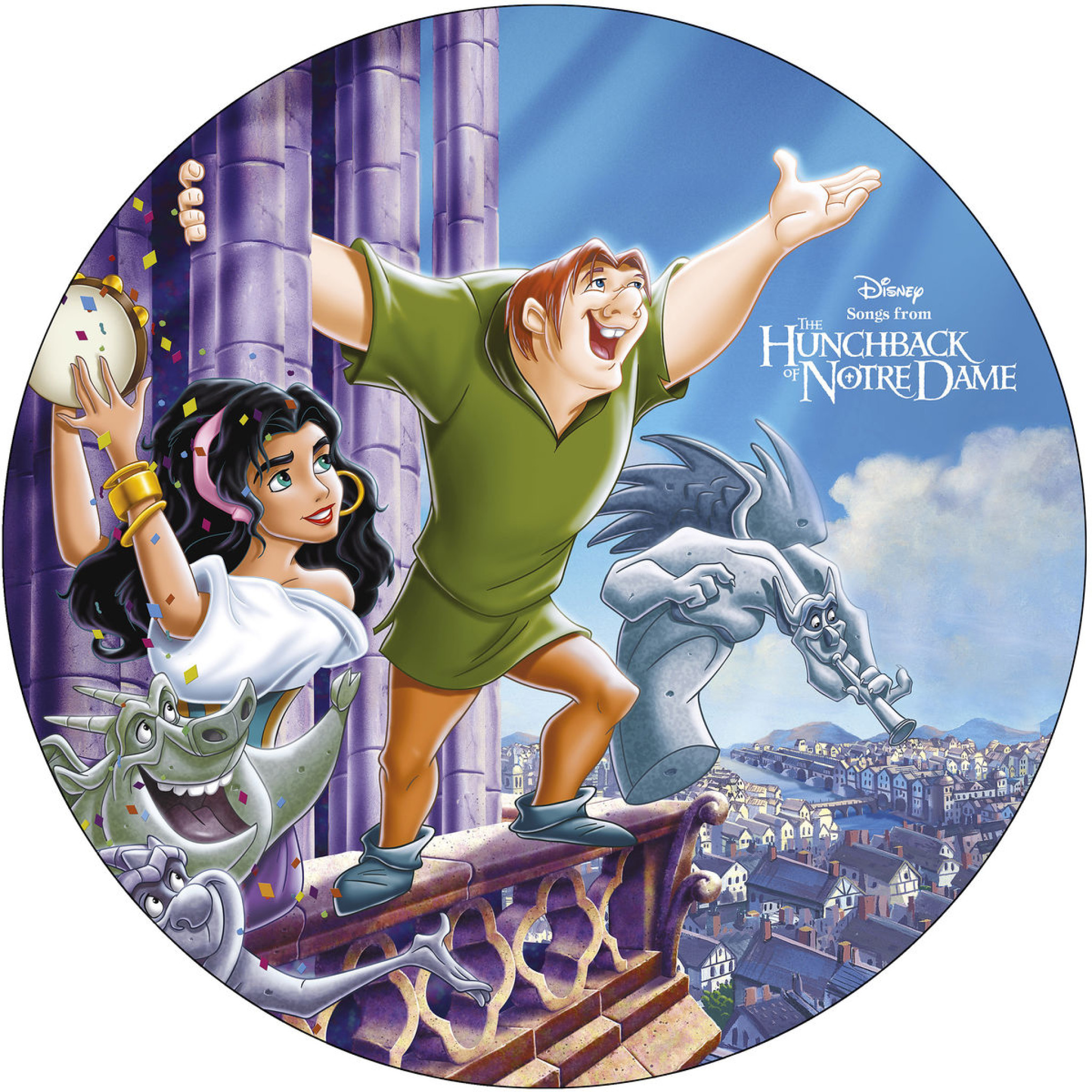The Essence of The Hunchback of Notre Dame’s Themes
Victor Hugo’s The Hunchback of Notre Dame, a timeless masterpiece, weaves a haunting tale that delves into the depths of human nature. Central to the story’s allure are its enduring themes that resonate deeply with readers and audiences alike. These profound ideas transcend the bounds of time and culture, exploring topics that remain universal and poignant.

Image: www.karussell.de
The Search for Acceptance and Belonging
Quasimodo, the protagonist of the tale, is a poignant embodiment of the human desire for acceptance and belonging. Born with extreme physical deformities, he faces relentless rejection and ridicule from a society that deems him unworthy. Throughout the story, he yearns for a sense of connection and purpose, longing to belong to a community that embraces him for who he is.
The Power of True Love
Amid the darkness of Quasimodo’s isolation emerges Esmeralda, a spirited gypsy dancer who inadvertently becomes his savior. Esmeralda transcends physical appearances, seeing beyond Quasimodo’s outer shell to the gentle soul within. Her unwavering love and compassion ignite a glimmer of hope in Quasimodo’s heart, demonstrating the transformative power of genuine acceptance.
The Battle between Good and Evil
The Hunchback of Notre Dame presents a vivid portrayal of the eternal struggle between good and evil. Archdeacon Claude Frollo, the story’s antagonist, represents the forces of darkness and corruption within humanity. His insatiable lust for power and obsessive desire for Esmeralda lead him down a path of destruction and cruelty.
In contrast, Quasimodo and Esmeralda embody the forces of good. Their enduring love and resilience serve as beacons of human compassion and the transformative potential of forgiveness. Through their actions, they demonstrate that even in the face of adversity, the human spirit can prevail.

Image: www.youtube.com
The Folly of Prejudice and Judgment
The plight of Quasimodo serves as a stark indictment against prejudice and the dangers of judging others based on their outward appearance. Hugo’s masterful storytelling exposes the hypocrisy and superficiality of society, highlighting the harmful consequences of fear and ignorance.
Latest Trends and Developments in Storytelling
In recent years, the themes explored in The Hunchback of Notre Dame have gained increased relevance in modern society. The celebration of diversity, the acceptance of marginalized individuals, and the battle against prejudice have become prominent topics in storytelling across various platforms.
Tips for Incorporating these Themes into Storytelling
– Embrace diverse perspectives: Create characters that represent a wide spectrum of backgrounds, experiences, and physical traits to reflect the diversity of human experience.
– Explore the power of empathy: Engage readers by crafting stories that allow them to step into the shoes of others and understand their struggles and aspirations.
– Challenge stereotypes and biases: Subvert traditional expectations and explore the complexity of human nature, demonstrating that people often resist easy categorization.
FAQ on The Hunchback of Notre Dame and its Themes
- Q: What is the central theme of The Hunchback of Notre Dame?
- A: The search for acceptance, the power of true love, and the battle between good and evil.
- Q: How does the story challenge societal norms?
- A: It confronts prejudices based on physical appearance and exposes the dangers of ignorance and fear.
- Q: How does the character of Esmeralda represent hope?
- A: Esmeralda’s unwavering love for Quasimodo demonstrates the transformative power of compassion and the ability to see beyond superficial differences.
The Hunchback Of Notre Dame Theme
Conclusion: A Timeless Tale for the Ages
The Hunchback of Notre Dame remains a captivating tale that transcends time and continues to inspire audiences today. Its enduring themes resonate deeply with the human experience, exploring the struggles for acceptance, the power of love, and the consequences of prejudice. By embracing these themes in storytelling, we can ignite conversations, challenge biases, and promote a more inclusive and understanding world.
Have you encountered the transformative themes of The Hunchback of Notre Dame in other stories or in your own life? Share your experiences and insights below.
